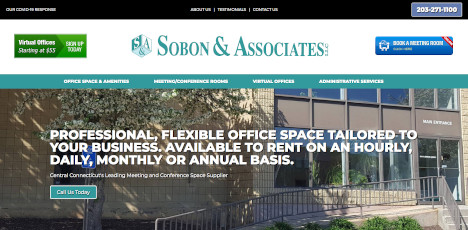
It’s not always easy to know when you should be marketing and when you should be focusing on other areas of your business. While there are some constants in life such as vacation time, ice cream, and going to the doctor on a regular basis others change according to circumstance. For example, think about running a business during the summertime. It can be challenging just trying to keep up with everything that’s going on. If you own a small business or entrepreneurial company, you may feel even more uncertain about what and when to do marketing-related activities. After all, how can you possibly keep tabs on everything your company does? Fortunately, there are some golden rules for starting and maintaining a successful program. The best way to understand them is by learning about these seven common marketing mistakes businesses make and how to avoid them so your company won’t make them too.
Mistakes to Avoid
It’s not always easy to know when you should be marketing and when you should be focusing on other areas of your business. While there are some constants in life—such as vacation time, ice cream, and going to the doctor on a regular basis—others change according to circumstance. For example, think about running a business during the summertime. It can be challenging just trying to keep up with everything that’s going on.
If you own a small-business or entrepreneurial company, you may feel even more uncertain about what and when to do related activities. After all, how can you possibly keep tabs on everything your company does? Fortunately, there are some golden rules for starting and maintaining a successful program. The best way to understand them is by learning about these seven common marketing mistakes businesses make and how to avoid them so your company won’t make them too.

Not Having a Marketing Clear Vision
One of the most common mistakes businesses make is not having a clear vision. This can happen for a variety of reasons, but it usually comes down to not knowing what you’re trying to achieve with your efforts. If you don't have a clear vision, your efforts will be unfocused, and you won't be able to measure your success.
To avoid this mistake, start by defining your goals. What do you want to achieve with your efforts? Do you want to increase sales, build brand awareness, or generate leads? Once you have a clear understanding of your goals, you can create a marketing plan that aligns with those goals.
Your plan should include a detailed description of your target audience, your unique selling proposition (USP), and the tactics you'll use to reach your audience.
It should also include a budget and a timeline for your activities. By having a clear vision and a plan to achieve it, you'll be able to measure your success and make adjustments as needed.
Not Monitoring Your Progress
Another common mistake businesses make is not monitoring their progress. It's important to track your efforts so you can see what's working and what's not. This will allow you to make adjustments to your marketing plan as needed and improve your overall results.
To monitor your progress, you'll need to establish key performance indicators (KPIs) for your activities. These KPIs should be specific, measurable, and tied to your goals. For example, if your goal is to increase sales, your KPI might be the number of leads generated or the conversion rate from leads to sales.
Once you've established your KPIs, you'll need to track them over time. This can be done using a variety of tools, including Google Analytics, social media analytics, and email software. By monitoring your progress regularly, you'll be able to identify areas where you need to improve and make changes to your plan accordingly.
Buying the Wrong Tools
Marketing can be expensive, and it's easy to fall into the trap of buying the latest and greatest tools without really knowing whether they're right for your business. This can be a costly mistake, especially if the tools you buy don't align with your goals or aren't a good fit for your target audience.
To avoid this mistake, start by identifying the tools you need to achieve your goals. Do you need a social media management tool, an email platform, or a customer relationship management (CRM) system? Once you've identified the tools you need, do your research to find the best options for your business.

When evaluating tools, consider factors like cost, ease of use, and features. Look for reviews from other businesses in your industry to see what works well for them. And don't be afraid to ask for a demo or trial period before committing to a tool.
Failing to Believe in Your Own Skills
Many small business owners and entrepreneurs lack confidence in their own marketing skills. This can lead to a lack of focus and a reluctance to invest in activities. However, it's important to remember that marketing is a skill that can be learned and improved over time.
To build your confidence in your marketing skills, start by educating yourself about marketing best practices. Read books, attend webinars, and take courses to learn more about marketing strategy, tactics, and execution. You can also seek out mentorship or coaching from other successful marketers in your industry.
As you build your skills and knowledge, start testing your marketing ideas and strategies. Take small steps and measure your results to see what's working and what's not. Over time, you'll gain more confidence in your abilities and be able to create more effective marketing campaigns.
Over-Promising and Under-Delivering
Finally, one of the biggest marketing mistakes businesses make is over-promising and under-delivering. This can happen when you set unrealistic expectations for your campaigns or promise things you can't deliver. It can also happen when you don't have the resources or expertise to execute your marketing plan effectively.
To avoid this mistake, be realistic about what you can achieve with your efforts. Set achievable goals and make sure you have the resources and expertise to execute your plan effectively. And always be honest with your customers and prospects about what they can expect from your products and services.
If you do make a mistake or fall short of your goals, own up to it and take steps to make things right. This will help you build trust with your customers and maintain a positive reputation in your industry.
Conclusion
Marketing is a critical part of any business, regardless of the economic climate. By avoiding these common marketing mistakes, you can create a successful marketing program that drives results and helps you achieve your business goals. Remember to have a clear vision, monitor your progress, invest in the right tools, believe in your own skills, and avoid over-promising and under-delivering. With these principles in mind, you can create a marketing program that sets your business up for long-term success.







